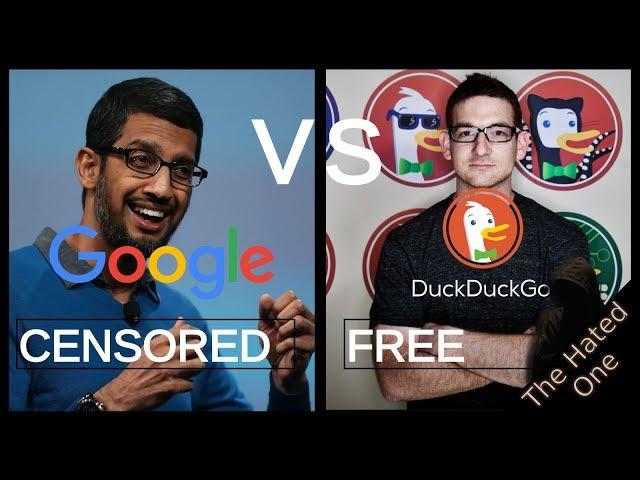
In the sprawling digital arena where billions seek answers every day, three colossal search engines stand as the champions of cyberspace: Google, Bing, and DuckDuckGo. Each titan brings its unique strengths to the battlefield, vying for dominance in the quest to be the go-to gateway to the internet. As users navigate the labyrinth of information, understanding the distinct features and philosophies of these search giants becomes essential.This exploration delves into the heart of the competition, examining what sets Google, Bing, and DuckDuckGo apart in their relentless pursuit of supremacy in the world of online search.
Table of Contents
- Unveiling the Search Engine Showdown
- Navigating Privacy protocols Across the Titans
- decoding Algorithmic Excellence and Relevance
- Assessing User Experience and Interface Innovations
- Strategic Recommendations for Optimal Search Performance
- The way Forward

Unveiling the Search Engine Showdown
In the vast digital landscape, finding the right search engine can feel like navigating a labyrinth. Enter the titans of search: Google, Bing, and DuckDuckGo. Each contender brings its unique strengths to the arena, catering to diverse user preferences and priorities. Whether it’s unparalleled search accuracy, visually stunning interfaces, or uncompromised privacy, these engines vie for supremacy in delivering the optimal search experience.
Google, the undisputed leader, boasts an extensive index and sophisticated algorithms that deliver lightning-fast, relevant results. Bing steps into the ring with its visually appealing design and integration with Microsoft services, offering a seamless experience for users entrenched in the Microsoft ecosystem. DuckDuckGo, the privacy champion, attracts those who prioritize anonymity and data protection without sacrificing search functionality.
To better understand their distinct offerings, let’s delve into a comparative overview:
| Feature | Google | Bing | DuckDuckGo |
|———————–|—————————–|—————————–|—————————|
| Market Share | Dominates with 92% | Holds around 2.5% | Growing steadily |
| Privacy Focus | Moderate tracking | Some privacy controls | Strong no-tracking policy |
| Unique Selling point | extensive search results | Gorgeous image and video search | enhanced privacy features |
| Integration | Seamless with Google services| Integrates with Microsoft products | Compatible with various privacy tools |
| User Interface | Clean and minimalistic | Rich visual layout | Simple and straightforward|
As the digital duel continues, users are empowered with choices that align with their individual needs and values. Whether you seek the cutting-edge prowess of Google, the visually enriched experience of Bing, or the privacy-centric approach of DuckDuckGo, the search engine showdown ensures that your quest for information is both effective and tailored to your preferences.
Navigating Privacy Protocols Across the Titans
in the competitive landscape of search engines, privacy protocols have become a pivotal factor for users selecting their preferred platform. Google, Bing, and DuckDuckGo each implement unique strategies to manage user data, reflecting their core philosophies and business models. Understanding these differences is key to making informed choices about your online privacy.
Google leverages extensive data collection to enhance search accuracy and provide personalized advertising. While this approach delivers a highly tailored user experience,it also involves significant tracking and data storage,raising privacy concerns for some users. Bing, powered by Microsoft, strikes a balance by offering robust privacy settings and greater clarity in data usage. It allows users to customize their privacy preferences, though it still relies on data to optimize search results and advertisements.
DuckDuckGo distinguishes itself by prioritizing user anonymity above all. Committed to a no-tracking policy, DuckDuckGo does not store personal information or create user profiles, ensuring a private search experience by default.This dedication to privacy appeals to individuals who prefer minimal data footprint online, even if it means sacrificing some level of personalization.
| Privacy Aspect | Google | Bing | DuckDuckGo |
|———————–|———————————-|———————————–|———————————|
| Data Tracking | Extensive | Moderate | Minimal |
| User Personalization | High | Moderate | Low |
| Privacy settings | Advanced but complex | Customizable | Simple and straightforward |
| Data Encryption | HTTPS by default | HTTPS by default | HTTPS by default |
| Tracking Opt-Out | Limited options | More comprehensive options | Not required, inherently private|
Navigating these privacy protocols allows users to align their search behavior with their personal privacy values. Whether you prioritize detailed personalization or uncompromised anonymity, understanding each search engine’s privacy framework empowers you to choose the platform that best fits your needs.
Decoding Algorithmic Excellence and Relevance
In the relentless pursuit of delivering the most pertinent search results, Google, Bing, and DuckDuckGo deploy sophisticated algorithms that serve as the backbone of their search engines. These algorithms are meticulously crafted to interpret user intent, assess content quality, and prioritize relevance, albeit thru distinct methodologies that reflect each platform’s unique philosophy and objectives.
Google’s prowess lies in its unparalleled ability to process vast amounts of data using machine learning and artificial intelligence. Features like the rankbrain system enable Google to understand complex queries and deliver nuanced results, making it the go-to for comprehensive and accurate information retrieval. Bing, leveraging Microsoft’s technological ecosystem, emphasizes integration with other Microsoft services and offers rich multimedia search capabilities.Its algorithm places a strong emphasis on visual search and local results, catering to users seeking a more interactive search experience. on the other hand, DuckDuckGo prioritizes user privacy, eschewing personalized data collection. Its algorithm focuses on delivering unbiased search results by sourcing information from a variety of partners without tracking user behavior, appealing to privacy-conscious users.
| Feature | Google | Bing | DuckDuckGo |
|———————–|————————————|————————————–|————————————|
| Primary Focus | Comprehensive accuracy | integrated multimedia and local | Privacy and unbiased results |
| Key Algorithm | RankBrain & BERT | Microsoft AI & Visual Search | aggregated sources without tracking|
| Personalization | Highly personalized | Moderately personalized | No personalization |
| Privacy | Data-driven personalization | Data integration with Microsoft | Strict no-tracking policy |
| Unique Strength | Extensive AI and machine learning | Rich media and local search features | User anonymity and privacy focus |
This comparative landscape highlights how each search titan leverages its algorithmic strengths to carve out a distinct space in the search engine market. While Google continues to lead with its cutting-edge AI capabilities and expansive data processing, Bing offers a visually rich and integrated search experience. Simultaneously occurring, DuckDuckGo stands out by championing user privacy without compromising on the relevance of search results. Understanding these algorithmic nuances empowers users to choose the search engine that best aligns with their needs and values.
Assessing User Experience and Interface Innovations
in the relentless competition among search giants, user experience (UX) and interface design play pivotal roles in shaping preferences.Google, renowned for its minimalist approach, offers a clean and intuitive interface that emphasizes speed and efficiency. Its seamless integration with other Google services enhances user convenience, providing a cohesive ecosystem for information retrieval. Recent innovations, like the dark mode and personalized dashboard, reflect Google’s commitment to adaptive user interfaces that cater to individual preferences.
Conversely, Bing distinguishes itself with visually engaging elements and rich media integration. Its homepage often features stunning imagery and interactive elements that create a more immersive search experience. Bing’s user interface incorporates advanced filtering options and a customizable layout, allowing users to tailor their search surroundings to better meet their needs. simultaneously occurring, duckduckgo champions simplicity and privacy, offering a straightforward interface devoid of unnecessary clutter. Its focus on clean design ensures that users can navigate search results effortlessly, while innovative privacy controls provide peace of mind without compromising on usability.
| Feature | Google | Bing | DuckDuckGo |
|————————-|———————————–|———————————–|———————————–|
| Design Aesthetic | minimalist, clean lines | Visually rich, dynamic backgrounds| Simple, uncluttered |
| Customization | Personalized dashboards, themes | Customizable layouts, filters | Limited customization, focus on simplicity |
| Privacy Controls | Integrated with account settings | Privacy settings available | Robust privacy features, tracker blocking |
| interactive Elements| Smart suggestions, quick tools | Interactive results, media previews| Basic interaction, functionality-focused |
| Accessibility | High contrast modes, voice search | Multilingual support, accessibility tools | Keyboard navigation, screen reader-pleasant |
Understanding these nuances helps users make informed decisions based on their preferences for design, customization, privacy, and interactive features.
Strategic Recommendations for Optimal Search Performance
To navigate the competitive landscape of search engines, businesses and content creators must tailor their strategies to leverage the unique strengths of each platform. For Google, focusing on comprehensive SEO practices, such as keyword optimization, mobile-friendly design, and high-quality backlinks, can substantially enhance visibility. Bing, with its integration with Microsoft products, rewards content that leverages multimedia elements and utilizes Bing Webmaster Tools for performance tracking. Meanwhile, DuckDuckGo emphasizes privacy and simplicity, encouraging websites to prioritize fast loading speeds and clear, concise content to improve search rankings.
Understanding user behavior on each platform is also crucial. Google dominates with its extensive user base, making it essential to maintain a robust presence through content marketing and continuous SEO efforts. Bing users, frequently enough integrated within professional environments, respond well to detailed, authoritative content and targeted advertising through Bing Ads. DuckDuckGo attracts privacy-conscious users who prefer straightforward, obvious information, so ensuring that your content is easily accessible and trustworthy can foster engagement and loyalty.
To effectively balance these strategies, consider the following recommendations:
| Strategy | Google | Bing | DuckDuckGo |
|———————-|———————————|———————————–|————————————-|
| SEO Optimization | Comprehensive keyword research | Leverage multimedia content | Focus on clear, concise content |
| User Engagement | Interactive, dynamic content | Detailed, authoritative content | Transparent, trustworthy information|
| Technical Enhancement| Mobile-friendly design | Utilize Bing Webmaster Tools | Ensure fast loading speeds |
| Marketing Approach | Content marketing & backlinks | Targeted Bing Ads campaigns | Emphasize privacy and simplicity |
By customizing your approach for each search titan, you can enhance your overall search performance, ensuring that your content reaches the right audience effectively and efficiently.
The way Forward
In the vast digital arena, Google, Bing, and DuckDuckGo each carve out their unique niches, offering distinct advantages to their users. Google continues to dominate with its unparalleled search algorithms and comprehensive ecosystem, while Bing brings its own flair with visually engaging interfaces and seamless Microsoft integrations. Meanwhile, DuckDuckGo champions privacy, attracting those who prioritize anonymity in their online searches. As the battle of the search titans rages on, the ideal choice ultimately hinges on individual preferences and priorities. Whether it’s the quest for the most accurate results,aesthetic appeal,or safeguarding personal data,each search engine stands ready to serve diverse user needs in the ever-evolving landscape of the internet.





















